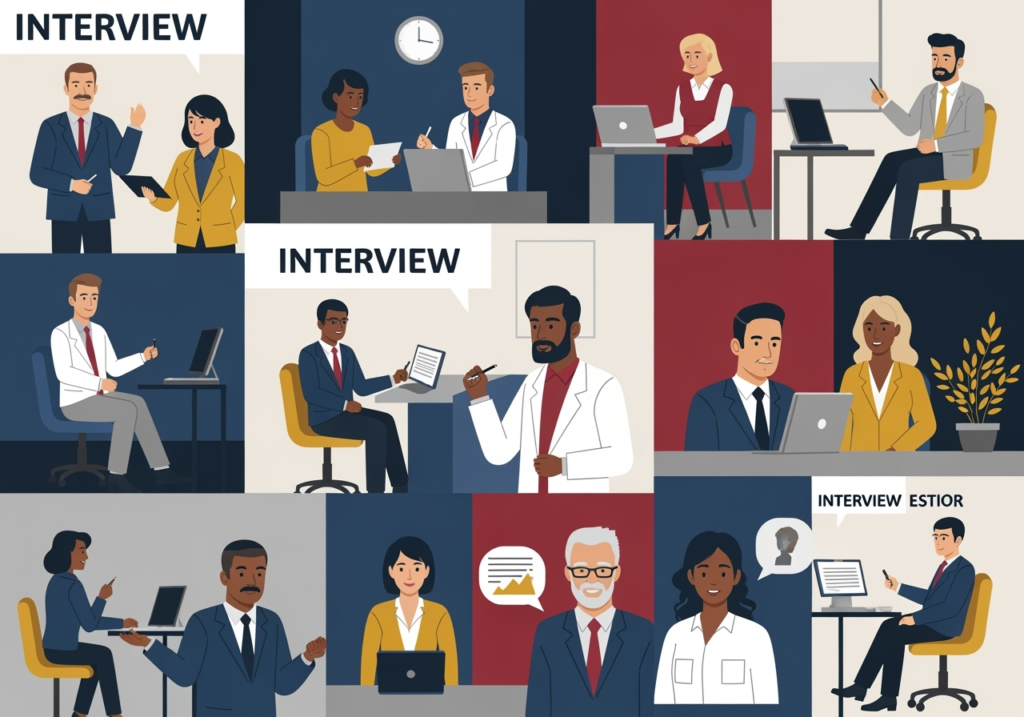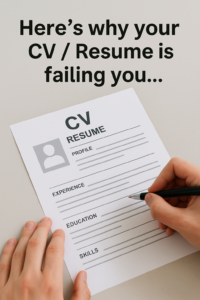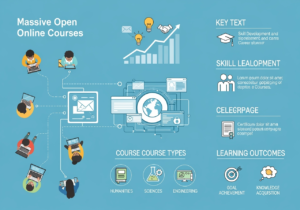Requisite Interview Skills to get hired

There are certain easy procedures that job applicants can take that will enhance your chances of success at interviews. It is important to keep in mind that a job interview is a two-way communication process where both interviewer/s and interviewee need to participate to exchange their thoughts. Not only are they an instrument for businesses to evaluate a potential candidate, but also it is an opportunity for the candidate to evaluate the job, the requirements of the position, the company, and understand whether it is a fit. The current post explains a list of guidelines that can help you prepare for an interview better.
Self-assessment:
Job applicants need to reflect and think about themselves and their prior work experiences to articulate things that they have to offer an establishment.
Topics to consider
– present and experience linked to the position
– current skill sets and competencies
– short-term and long-term career goals
– awareness regarding skill gaps, and skills that need to be developed
– culture, environment, and people that are preferred
Carry out extensive research and learn as much as possible regarding the company
Carry out thorough research, look at their official website, and any company literature that might have been sent to learn more about the company. Try to understand the purpose of the company, its value statements, mission, vision, goals, and the like. Learning more about these facts can help interviewees become familiar with the guiding principles, and culture of the organization. Additionally, candidates can also attempt to note how the vacant position fits into the company.
Practice mock interviews
Candidates can try to make a list of probable questions and then ask a friend to play the role of an interviewer and direct the questions in the mock interview session. There are lots of interviewers who ask situation-based questions (for example, tell me about a time……) followed by a relevant situation linked to the work area and this job. In these cases, candidates can brainstorm and work on these questions to find out intelligent answers.
Dress Professionally
Nowadays, wearing a suit for an interview is not always necessary. Candidates can ask the HR manager or any other contact person regarding the dress code before attending the interview session and then can dress one level over. It is better to be overdressed than underdressed in most situations.
Arrival
Punctuality that refers to a quality of being on time is highly required by employers and this quality reflects a person’s respect for other people and time. Therefore, candidates can try to arrive at the interview venue a little early. Again, this also provides them some time to as understand where they need to go, whom to meet and a few moments to collect thoughts.
Creating a Good First impression
Making a great first impression requires only thirty seconds. Establishing a bond with direct and sustained eye contact, good body posture, a warm smile, and a firm handshake, and introducing oneself in a poised way are key factors. A neat and professional appearance is also critical at the same time for creating a good first impression.
Smile
A warm smile shows self-confidence in a candidate. Therefore, try to maintain a smile and do not hesitate to show some hand gestures while responding to the questions. This also reflects a higher level of interest in a candidate.
Body Language
Try to use good postures by looking straight into the eyes (but not locking it continuously as it can show aggression). Try to sit straight and not in a lazy and drooping manner.
Speak Confidently and Clearly
Confidence can allow candidates to speak concisely and clearly in an efficient manner. Do not mumble as speaking indistinctly as indicate lack of confidence.
Try to listen carefully before responding
Candidates need to hear and detect the sounds of the speech directed toward them, comprehend the message of those sounds, and analytically appraise that message, think of what’s been said, and reply. Also, a candidate must not be scared of taking some time to reflect before replying.
Give Concise Answers
It is also important to make the answers precise and to the point. Lengthy and confusing answers tend to show that a candidate does not have the answer to the question thrown at them.
Thoroughly study Resume
Candidates need to be prepared to talk in detail about the facts/data mentioned on the resume. Many applicants try to decorate their resumes by overstating their achievements. Interviewees must try to avoid doing this as the resume is the only reference point that the interviewer has beforehand.
Thank the Interrogator
Verbally express thanks to the questioner for taking the time to interview, before parting. In a day or two, send thank-you emails to the interviewers.
#InterviewSkills #ListeningSkills #BodyLanguage #FirstImpression #Research #AboutTheCompany #BodyLanguage #Smile #ThanksCard






















